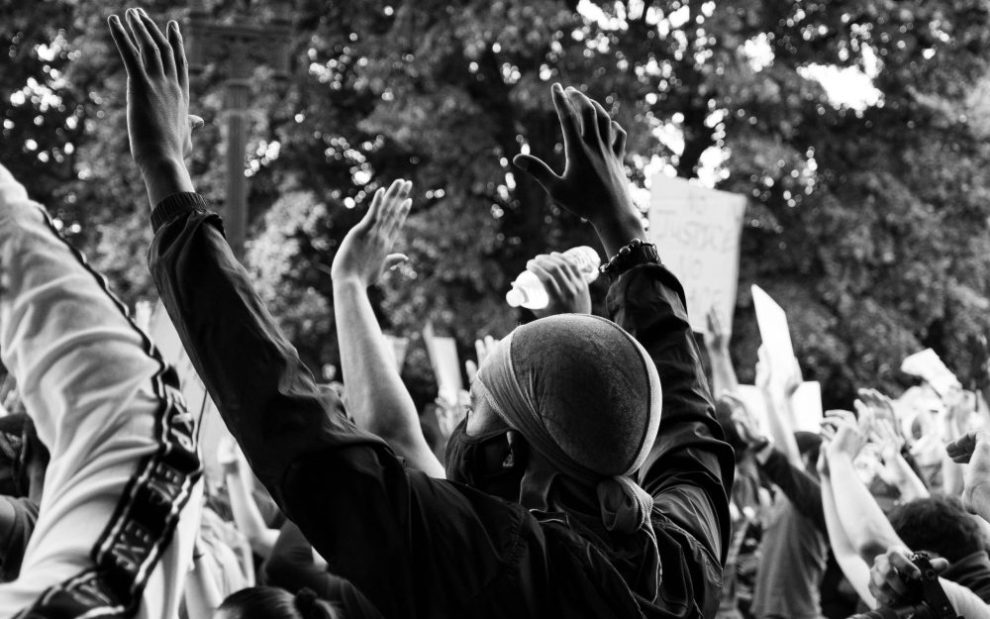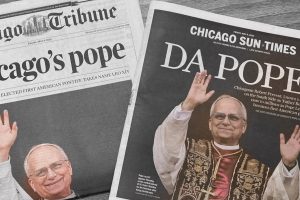Like the pope’s encyclical letter on creation care, Laudato Si’, the apostolic exhortation Laudate Deum alludes to St. Francis of Assisi and his famous Canticle of the Creatures, because, as the pope writes in the first paragraph of the letter, St. Francis “accepted the invitation of the biblical Psalms” to praise God for all creatures.
Laudate Deum reads like a lament psalm, a category that accounts for nearly half the biblical psalms. I call them sorrow songs, protest poems, and mournful melodies because complaints mark lament psalms. Yet they always end in praise despite their pensive tone. Like the lament psalms, Laudate Deum emphasizes (and some critics might say overemphasizes) our ecological hang-ups, but it ends in hope.
To be clear, praising God is Christian psalmody’s goal. The ancient biblical editors grouped the 150 psalms into five sections or books, and each book ends with a doxology or a hymn of praise. The last five psalms are lengthy doxologies inviting everything with breath to praise God.
The lament psalm’s structure appeals to me because I grew up singing traditional African American sorrow songs or spirituals. Our church organist and children’s choir director, Sister Naomi McClary, taught these songs to me and other doe-eyed churchgoing children. She also explained how God gave our enslaved ancestors these sorrow songs during their indescribable suffering. As we merrily sang songs such as “Jesus Walked This Lonesome Valley,” she often told us that we would need these songs someday and would understand them better by and by. In hindsight, I can see how these sorrow songs acknowledged painful realities in the light of Christian faith and hope.
Reading Laudate Deum reminded me of the spiritual “He’s Got the Whole World in His Hands,” because both invite us to contemplate how we understand power. As I imagine my enslaved ancestors laboring in cotton and rice fields in South Carolina under unjust conditions, I can hear them praising God for holding the sun, moon, birds, bees, wind, rain, little bitty babies, you, and me in God’s hands. While white supremacist ideologies and systemic racism may have forced them to call other human beings “master,” the Spirit gave them new songs that voiced God’s sovereignty over the whole world. Like my enslaved ancestors, Pope Francis laments how idolatrous thinking has led humanity to “claim to take God’s place” and “become their own worst enemies.”
The pope’s lament focuses on two contrasting worldviews introduced in Laudato Si’: integral ecology and the technocratic paradigm. The former term describes how everything is connected in the Catholic imagination. While Catholic social teaching generally explains how the Catholic faith relates to human flourishing, Laudato Si’ describes how the Catholic faith requires the faithful to see creation care and human flourishing as two sides of the same coin. Human life is inconceivable without nonhuman beings. The pope calls this multidimensional vision of the world “integral ecology.”
An integral ecology compels the faithful to reject the second worldview Pope Francis defines in Laudato Si’: the technocratic paradigm. Pope Francis describes the technocratic paradigm as the “undifferentiated and one-dimensional paradigm” that gives the false impression that humans can master the world through science and technology because “goodness and truth automatically flow from technological and economic power.” This paradigm allows us to deny and conceal the facts concerning the reality of the climate crisis.
Because it distorts our perception of reality, Pope Francis calls the technocratic paradigm an “ideology.” The average person might define ideology as a set of ideas about the world. But Pope Francis adopts a scholarly definition of ideologies as oppressive ideas that conceal and distort reality. For example, white supremacy and patriarchy operate as oppressive ideologies that deny our shared humanity based on stereotypes. When combined, these ideologies empower white men to oppress people of color, subjugate women, send military-age young adults to war, and ignore children of all ages.
Likewise, the pope sees the technocratic paradigm as “the ideology underlying an obsession: to increase human power beyond anything imaginable, before which nonhuman reality is a mere resource at its disposal.” Put another way, the technocratic paradigm denies humanity’s shared creatureliness with nonhuman beings. If I were advising the pope, I would have suggested unmistakably linking the technocratic paradigm to other oppressive ideologies.
The good news is in the lament; the technocratic paradigm is a lie. Even though we may see ourselves as the masters of the Earth, we are not. “The Risen One is mysteriously holding [the creatures of this world] to himself and directing them towards fullness as their end,” says Pope Francis. Reality still invites us to praise God, who holds the whole world in God’s hands. Doxology invites us to become poor in power like St. Francis and my enslaved ancestors, to abandon our delusional pursuit of unlimited technological power and unlimited economic growth. “Praise God” is the title of the apostolic exhortation because doxology is our beginning and end.
This article also appears in the January 2024 issue of U.S. Catholic (Vol. 89, No. 1, pages 12-14). Click here to subscribe to the magazine.
Image: Unsplash/Koshu Kunii















Add comment